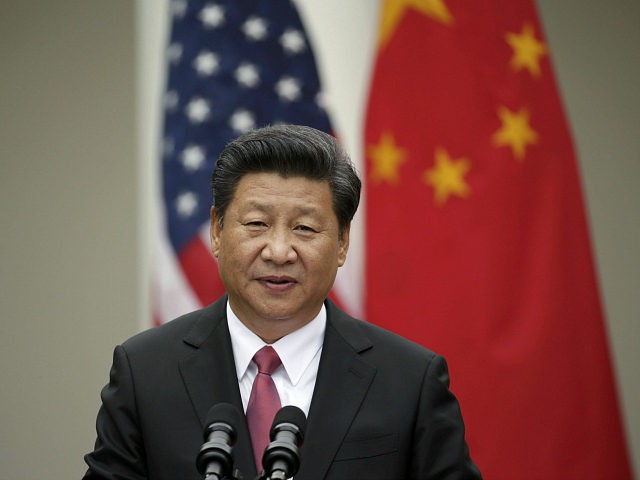Reuters reports that China’s Foreign Ministry declared support for sovereign immunity on Monday — implicitly (but not explicitly) supporting the government of Saudi Arabia against the Justice Against Sponsors of Terrorism Act (JASTA), which was recently upheld by a nearly-unanimous Senate vote against President Obama’s veto:
“China believes international anti-terrorism cooperation should… respect international law and principles of international relations, including fundamental principles of nations’ sovereign equality,” ministry spokesman Geng Shuang said.
“It should not put any country’s domestic laws above international law and should not link terrorism with any specific country, religion or ethnicity,” Geng told reporters at a regular press briefing.
He did not mention Saudi Arabia or the Sept. 11 attacks.
China says its people and assets at home and around the world face a growing risk from terrorism, but also insists it follows a foreign policy of non-interference in other countries’ affairs.
As China’s state-owned enterprises have expanded their footprints abroad, China has frequently cited sovereign immunity in its defense when it has been the targets of law suits overseas, including in the United States.
Chinese support for sovereign immunity isn’t new. In fact, they’ve been known to stretch the concept quite a bit.
In May, Reuters reported that Chinese state-owned business entities have “adopted a controversial defense when they face U.S. lawsuits: You can’t touch us because we enjoy sovereign immunity.”
One of these questionable claims of sovereign immunity was made in response to a lawsuit over the infamous “Chinese drywall,” defective building materials supplied during the U.S. housing boom that produces damaging chemicals when it degrades, leaving homeowners with thousands of dollars in repairs.
China’s Foreign Ministry “argued in a diplomatic note that U.S. courts have no jurisdiction over suits against a country’s ‘state-owned properties,'” invoking the U.S. Foreign Sovereign Immunities Act of 1976.
Another case involved the Aviation Industry Corporation of China (AVIC), which challenged a $70 billion arbitration judgment in federal district court by invoking sovereign immunity as a state-run enterprise.
“I think there is a mentality in China that, hey, we are behind these big walls and nobody can touch us,” trade litigator Bill Berry observed.
“The use of sovereign immunity by Chinese state-owned conglomerates is a reflection of how China’s state capitalism and legal regime is increasingly running into conflict with Western regulation and jurisprudence, particularly as the country’s overseas investment rapidly grows,” Reuters cautioned in May.
It’s easy to see why China would have a keen interest in preserving sovereign immunity since so many of its business interests can invoke protection unavailable to fully independent private-sector corporations in the United States.

COMMENTS
Please let us know if you're having issues with commenting.